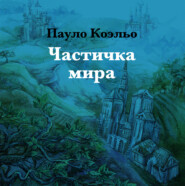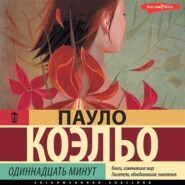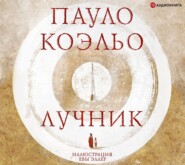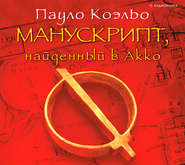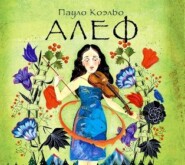По всем вопросам обращайтесь на: info@litportal.ru
(©) 2003-2024.
✖
Veronika Decides to Die
Автор
Год написания книги
2019
Настройки чтения
Размер шрифта
Высота строк
Поля
‘Your heart was irreversibly damaged and soon it will stop beating altogether.’
‘What does that mean?’ she asked, frightened.
‘If your heart stops beating, that means only one thing, death. I don’t know what your religious beliefs are, but…’
‘When will my heart stop beating?’ asked Veronika, interrupting him.
‘Within five days, a week at most.’
Veronika realised that behind his professional appearance and behaviour, behind the concerned manner, the young man was taking immense pleasure in what he was saying, as if she deserved the punishment, and would serve as an example to all the others.
During her life, Veronika had noticed that a lot of people she knew would talk about the horrors in other people’s lives as if they were genuinely concerned to help them, but the truth was that they took pleasure in the suffering of others, because that made them believe they were happy and that life had been generous with them. She hated that kind of person and she wasn’t going to give the young man an opportunity to take advantage of her state, in order to mask his own frustrations.
She kept her eyes fixed on his and, smiling, said: ‘So I succeeded then.’
‘Yes,’ came the reply. But any pleasure he had taken in giving her the tragic news had vanished.
During the night (#ulink_42a7e895-e174-5f7f-b802-6e56df311491), however, she began to feel afraid. It was one thing to die quickly after taking some pills, it was quite another to wait five days or a week for death to come, when she had already been through so much.
She had always spent her life waiting for something: for her father to come back from work, for the letter from a lover that never arrived, for her end-of-year exams, for the train, the bus, the phone call, the holiday, the end of the holidays. Now she was going to have to wait for death, which had made an appointment with her.
‘This could only happen to me. Normally, people die on precisely the day they least expect.’
She had to get out of there and get some more pills. If she couldn’t, and the only solution was to jump from a high building in Ljubljana, that’s what she’d do; she had tried to save her parents any unnecessary suffering, but now she had no option.
She looked about her. All the beds were occupied by sleeping people, some of whom were snoring loudly. There were bars on the windows. At the end of the ward, there was a small bright light that filled the place with strange shadows and meant that the ward could be kept under constant vigilance. Near the light, a woman was reading a book.
‘These nurses must be very cultivated, they spend their whole lives reading.’
Veronika’s bed was the farthest from the door; between her and the woman there were nearly twenty other beds. She got up with difficulty because, if she was to believe what the doctor had said, she hadn’t walked for nearly three weeks. The nurse looked up and saw the girl approaching, dragging her drip-feed with her.
‘I want to go to the toilet,’ she whispered, afraid of waking the other mad women.
The woman gestured vaguely towards the door. Veronika’s mind was working fast, looking everywhere for an escape route, a crack, a way out. ‘It has to be quick, while they think I’m still too frail, incapable of acting.’
She peered about her. The toilet was a cubicle with no door. If she wanted to get out of there, she would have to grab the nurse and overcome her in order to get the key from her, but she was too weak for that.
‘Is this a prison?’ she asked the nurse, who had stopped reading and was now watching her every movement.
‘No, it’s a mental hospital.’
‘But I’m not mad.’
The woman laughed.
‘That’s what they all say.’
‘All right then, I am mad, but what does that mean?’
The woman told Veronika not to stay too long on her feet, and sent her back to her bed.
‘What does it mean to be mad?’ insisted Veronika.
‘Ask the doctor tomorrow. But go to sleep now, otherwise I’ll have to give you a sedative, whether you want it or not.’
Veronika obeyed. On her way back, she heard someone whispering from one of the beds:
‘Don’t you know what it means to be mad?’
For a moment, she considered ignoring the voice: she didn’t want to make friends, to develop a social circle, to create allies for a great mass revolt. She had only one fixed idea: death. If she really couldn’t escape, she would find some way to kill herself right there, as soon as possible.
But the woman asked her the same question she had asked the nurse.
‘Don’t you know what it means to be mad?’
‘Who are you?’
‘My name is Zedka. Go to your bed. Then, when the nurse thinks you’re asleep, crawl back over here.’
Veronika returned to her bed, and waited for the nurse to resume her reading. What did it mean to be mad? She hadn’t the slightest idea, because the word was used in a completely anarchic way: people would say, for example, that certain sportsmen were mad because they wanted to break records, or that artists were mad, because they led such strange, insecure lives, different from the lives of normal people. On the other hand, Veronika had often seen thinly clad people walking the streets of Ljubljana in winter, pushing supermarket trolleys full of plastic bags and rags, and proclaiming the end of the world.
She didn’t feel sleepy. According to the doctor, she had slept for almost a week, too long for someone who was used to a life without great emotions, but with rigid timetables for rest. What did it mean to be mad? Perhaps she should ask one of the mad.
Veronika crouched down, pulled the needle out of her arm and went over to Zedka’s bed, trying to ignore her churning stomach. She didn’t know if the feeling of nausea was because of her weakened heart or the effort she was having to make.
‘I don’t know what it means to be mad,’ whispered Veronika. ‘But I’m not. I’m just a failed suicide.’
‘Anyone who lives in their own world is mad. Like schizophrenics, psychopaths, maniacs. I mean people who are different from others.’
‘Like you?’
‘On the other hand,’ Zedka continued, pretending not to have heard the remark, ‘you have Einstein, saying that there was no time or space, just a combination of the two. Or Columbus, insisting that on the other side of the world lay not an abyss but a continent. Or Edmund Hillary, convinced that a man could reach the top of Everest. Or the Beatles, who created an entirely different sort of music and dressed like people from another time. Those people – and thousands of others – all lived in their own world.’
‘This madwoman talks a lot of sense,’ thought Veronika, remembering stories her mother used to tell her about saints who swore they had spoken to Jesus or the Virgin Mary. Did they live in a world apart?
‘I once saw a woman wearing a low-cut dress; she had a glazed look in her eyes and she was walking the streets of Ljubljana when it was five degrees below zero. I thought she must be drunk and I went to help her, but she refused my offer to lend her my jacket. Perhaps in her world it was summer and her body was warmed by the desire of the person waiting for her. Even if that person only existed in her delirium, she had the right to live and die as she wanted, don’t you think?’
Veronika didn’t know what to say, but the madwoman’s words made sense to her. Who knows, perhaps she was the woman who had been seen half-naked walking the streets of Ljubljana?
‘I’m going to tell you a story,’ said Zedka. ‘A powerful wizard, who wanted to destroy an entire kingdom, placed a magic potion in the well from which all the inhabitants drank. Whoever drank that water would go mad.
‘The following morning, the whole population drank from the well and they all went mad, apart from the king and his family, who had a well set aside for them alone, and which the magician had not managed to poison. The king was worried and tried to control the population by issuing a series of edicts governing security and public health. The policemen and the inspectors, however, had also drunk the poisoned water and they thought the king’s decisions were absurd and resolved to take no notice of them.
‘When the inhabitants of the kingdom heard these decrees, they became convinced that the king had gone mad and was now giving nonsensical orders. They marched on the castle and called for his abdication.
‘In despair, the king prepared to step down from the throne, but the queen stopped him, saying: “Let us go and drink from the communal well. Then, we will be the same as them.”
‘And that was what they did: the king and the queen drank the water of madness and immediately began talking nonsense. Their subjects repented at once; now that the king was displaying such wisdom, why not allow him to continue ruling the country?







